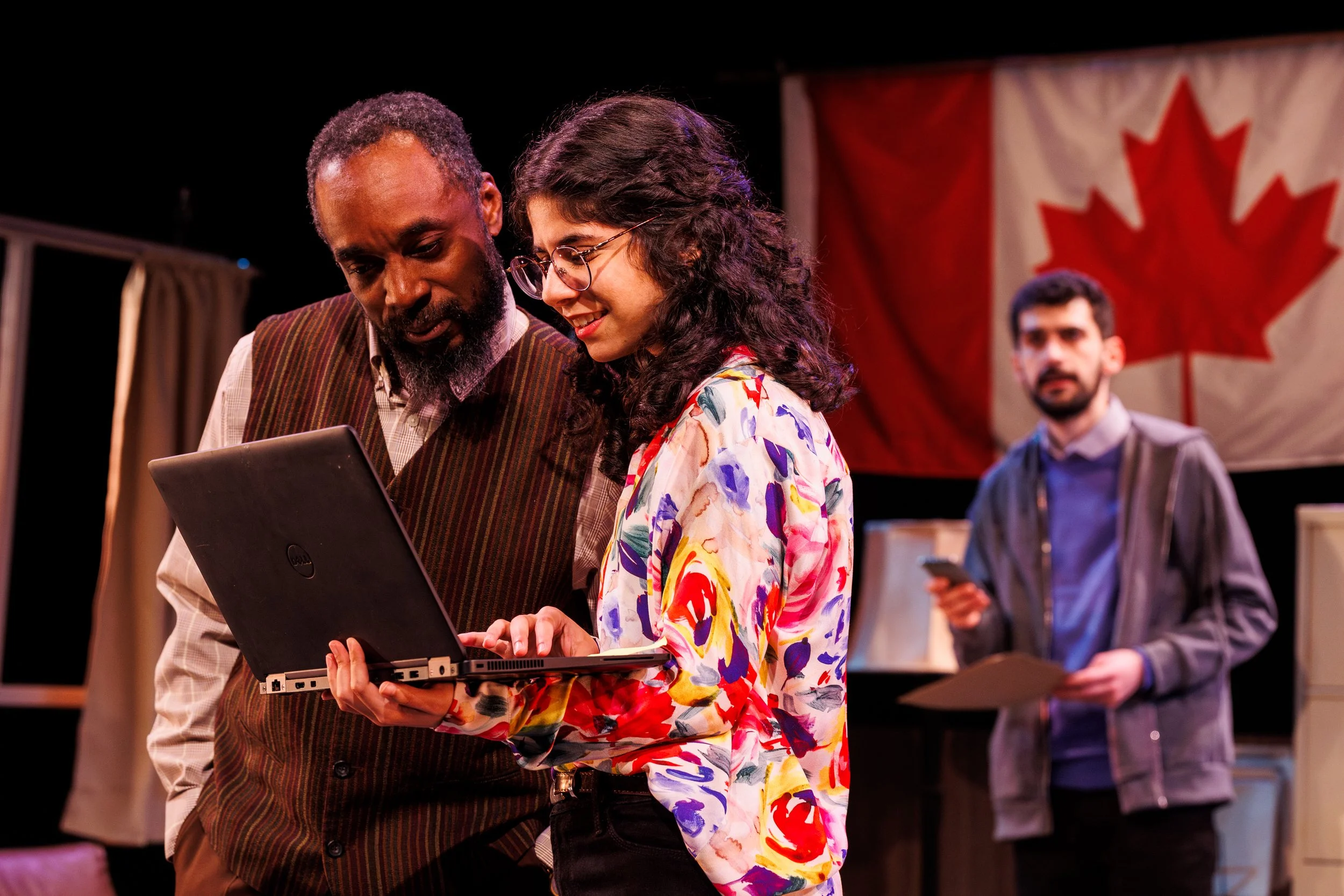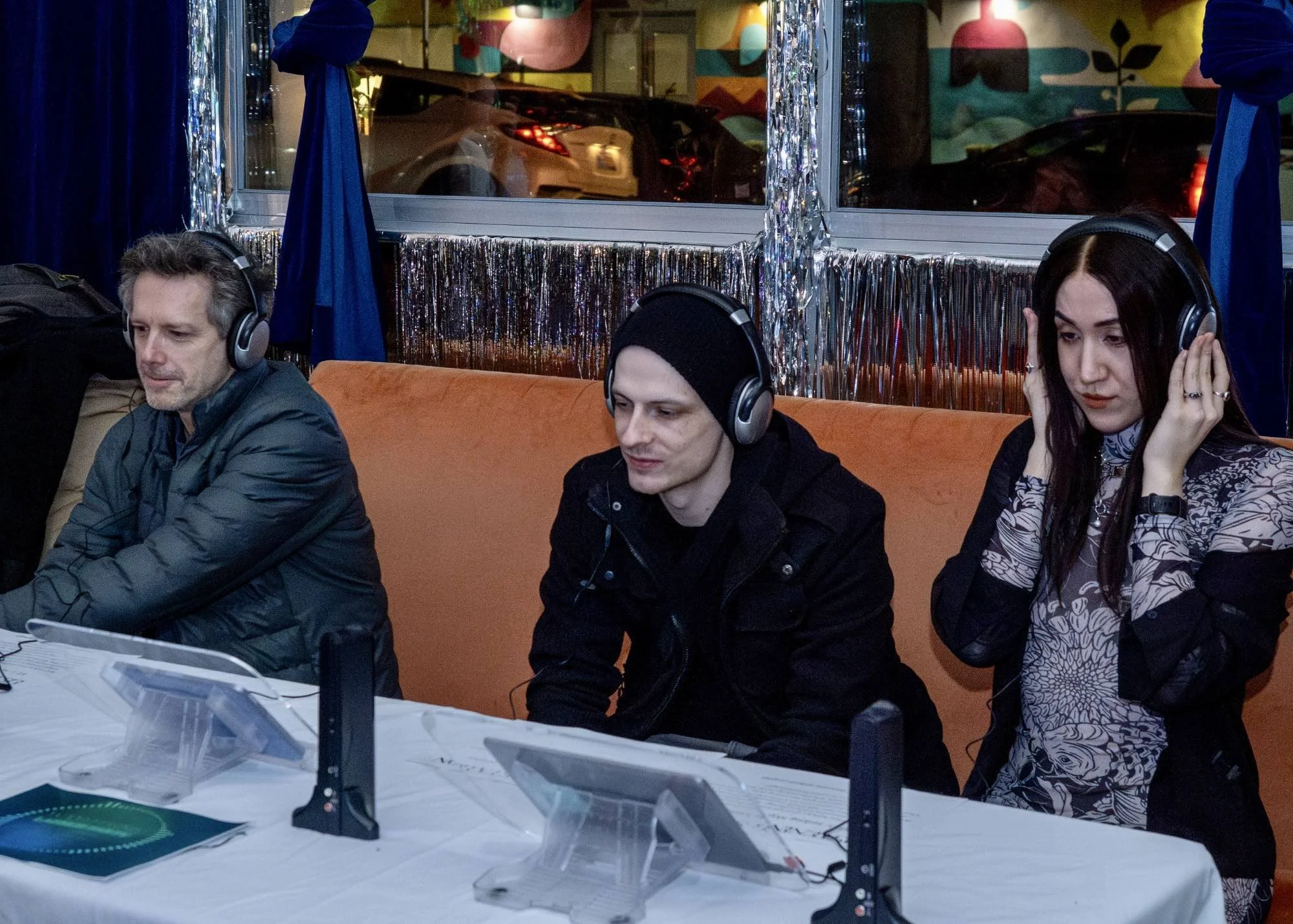Vancouver Symphony Orchestra opens season with cinematic interpretation of Stravinsky’s The Firebird
Director Lucas van Woerkum will edit and adapt his film to the orchestra’s performance in real-time, in program that includes Rachmaninoff’s Piano Concerto No. 3 and Morlock’s Night, Herself
Lucas van Woerkum’s Firebird.
The Vancouver Symphony Orchestra presents Firebird & Rachmaninoff at the Orpheum on September 20 and 21 at 8 pm, and September 22 at 2 pm
HOW DO YOU celebrate and honour great masterworks of the past, while appealing to the modern-day sensibilities of screen-bound audiences? If you’re Otto Tausk, music director of the Vancouver Symphony Orchestra, you tap fellow Dutchman Lucas van Woerkum to bring his Symphonic Cinema experience to the Orpheum Theatre.
A new genre of cinematic storytelling that has swept through Europe over the past decade, van Woerkum’s creations deliver something quite different than the movies in concert offerings. His dramas are manipulated and edited in real-time to match the orchestra’s interpretations, using custom-built software.
“I sit in the orchestra between the musicians,” van Woerkum explains in a Zoom call with Stir, while on the road from a performance in South Tyrol, Italy to his home in Amsterdam, the Netherlands. “I can trigger each shot of the film, and I can also slow down and speed up the film….Every evening it’s a bit different. I’m changing the speed of the film a bit to get all the accents on the right spot, and I believe you cannot do it in a different way. Even if you used a clicktrack without me, it wouldn’t be perfectly timed on the evening itself. I need to be part of the musicians.”
Next weekend will see van Woerkum “perform” his cinematic interpretation of Igor Stravinsky’s The Firebird, with Tausk at the podium. Originally composed in 1910 for Sergei Diaghilev’s Ballets Russes, the endlessly inventive work is often performed by orchestras as a condensed suite, rather than in its original form.
For Tausk, there’s no better way to engage with the work than in its entirety.
“The Firebird is one of my really favourite pieces,” the conductor enthuses. “It’s actually the first piece I did in Vancouver when I started as music director. And for me, the bits that are hardly ever played are the best bits. Orchestras always play the suites, and you can hear them everywhere. But those suites leave out the little interludes that Stravinksy wrote between the scenes for the ballet.
“Especially in those interludes, the instrumentation is pretty wild and not something that you'd expect,” he adds, noting there are musicians performing offstage, and a much bigger orchestra is required. “It’s quite an investment to do, and it’s not always so easy to program, but in this case it’s going to be different than we did years ago, because of the movie.”
For his film, van Woerkum, who studied French horn at Fontys Conservatory in Tilburg and filmmaking at the Utrecht School of the Arts, has given the piece a broader dramatic narrative arc. The original ballet depicted a Russian fairy tale about a mythical Firebird aiding Prince Ivan Tsarevich to free princesses from the spell of an evil sorcerer, Koschei. “It’s quite a simple story, and not enough to fill a 50-minute film, I think,” he notes. “I wanted to create an interesting connection between the Firebird and Koschei….I decided, in my script, that the Firebird is half human, half bird, and she is the daughter of Koschei. And while the wife of Koschei gave birth to the Firebird, she died. So there’s a trauma in between father and daughter.
“My film is actually about the daughter trying to get in touch with her father,” he continues. “That’s the main theme…. And if the Firebird is half human, half bird, then of course the mother could have been fully bird and Koschei fully human. But in the end, you will find out that he also has a sort of animal side in him that he’s hiding. So when he shows his true self, that's also the moment where daughter and father really reconnect. So it’s a sort of family drama.”
In crafting these cinematic experiences, van Woerkun says he hopes to attract more people to the concert hall. “I really want to create, I would say, a movement in which I can reach a new audience for classical music—and also the existing audience, of course, can be triggered by a new version of their masterpieces.
“As a musician, I always wanted to play for people that enjoyed the show,” he adds. “I think we all want to tell a story that can communicate with the audience.”
While the unique presentation of The Firebird is certainly a big draw, it’s not the only crowd-puller on this weekend’s program. The VSO will open with Night, herself, an evocative work by the orchestra’s former composer-in-residence Jocelyn Morlock, who died in March 2023, and whose loss is still being felt by the local community.
“I really want to keep her very, very much in our minds,” says Tausk. “She meant a lot to the orchestra…She was just such an interesting person, and full of humour. She always had this unexpected way of looking at things….I find that in her music, she had liveliness, but at the same time, there’s something underneath that is much deeper and more calm, in a way. I find these layers very often in her music, and especially also in the piece we're opening our season with.”
Another close friend of the orchestra, Canadian pianist Stewart Goodyear, will perform Sergei Rachmaninoff’s Piano Concerto No. 3, one of the most beloved—and virtuosic—works in the piano repertoire. “He’s been to the orchestra very often, and I think the audience has him in their hearts,” says Tausk of Goodyear. “He’s coming on tour with us as well, later on in this season, so I think it’s a really strong and interesting connection we have with Stewart. And I have never done Rachmaninoff with him yet, so I'm really looking forward to doing that with him.
“Of course, Rachmaninoff and Stravinsky, they go very well together,” he adds. “The musical mindset of that part of the world is just very powerful.”
Ultimately, says Tausk, he hopes audiences come away feeling transformed in some way. “I always hope that after a concert, people feel they have experienced something that has triggered their feelings, or their minds, or their thoughts, or something inside, and that they take that with them. I think by playing the Stravinsky score with the movie, it’s going to add a deeper layer to how we can look at the story. I think the way Lucas tells the story is not what you expect. It’s not just about princesses and monsters. And I think it has a deeper human message.
“What I’m hoping is that perhaps people can translate that message also to purely musical experiences, so that when they come to a concert the next time, they remember, ‘Oh, yeah, we heard that Stravinsky, and we had that movie and it kind of made sense in an emotional way or in a storytelling way. Maybe you don’t even need the movie to kind of experience that with music itself. Maybe it just triggers the story in me.’” ![]()
























